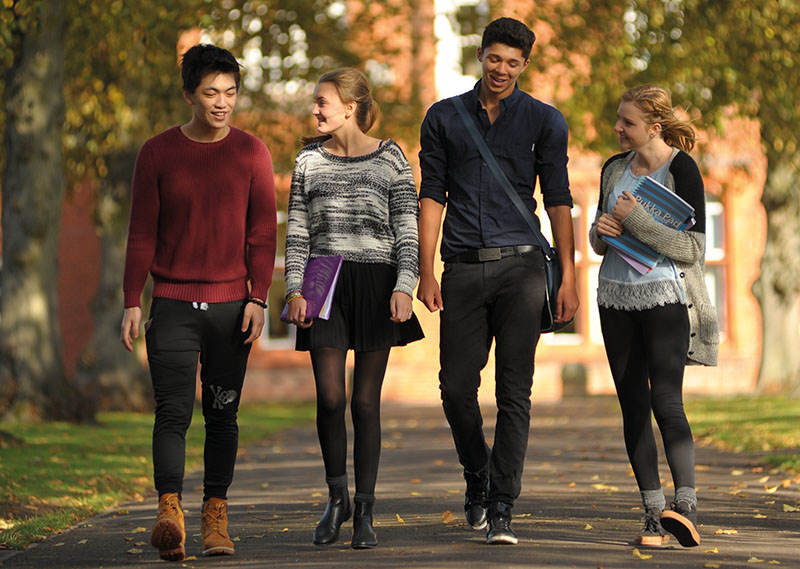Last year at Friends’ School we trialled a mobile-free day because we wished to reflect on the likelihood that in the 24/7-connected culture, we are creating a society where everyone is talking but no one is listening. This year we have decided, after a further trial run, that mobile phones have no place at Friends’ during the school day. This has been welcomed by many parents, and our pupils are surviving very well without them.
Technology at Friends’ is embraced as a tool for learning in lessons and in independent study but at breaktimes and lunchtimes we wish the tablets, laptops and iPods to disappear, so that the pupils can get some fresh air and exercise, socialise, talk to each other and build friendships. Old-fashioned stuff, perhaps, but vital to the health and wellbeing of pupils of all ages.
School is a constant in the lives of children. The routines of school are reassuring to young people and they do not need to encounter interference from external sources through constant texting and gossiping on social media during the school day. So often these are factors in the breakdown of good relationships between pupils, and they need not be. Many children today spend a very long day at school, when after-school activities and travel time are built in. They arrive home tired and then need to spend time on homework; many children also engage in other forms of organised activity in the evenings and at weekends. So when do they find the time for peace and quiet? When do they spend time alone? When are they just left to be?
Many schools are recognising the need to make space within the school day for peace and reflection, through programmes of mindfulness or meditation. In a Quaker school, silence has always been integral to our practice. Friends’ is over 300 years old and is one of seven Quaker schools in the UK. There are two others in Ireland, and indeed all over the world there are well-established Quaker schools. It is a fine, long tradition of enlightened education which encourages self-discipline, tolerance, peaceful interaction and listening.
Each week at Friends’ we meet as a whole school to share a silence of some 20 minutes. It is a powerful experience of communion. If anyone feels moved to speak or share a thought, he or she may do so, but very often we experience a peace and stillness together which words simply cannot, and need not, describe. Each is left to his/her own thoughts.
Although this is an expectation of all our pupils and staff, it is something which we all come to cherish; it does not feel like an imposition and it is often a feature of the school which our senior leavers value above all else. The habit and practice of silence is reinforced through a Year 7 retreat and a further opportunity in the Sixth Form. The whole experience promotes a culture of listening and reflection and the courage to share your views and thoughts. Our pupils are as noisy, boisterous and lively as any others, but we feel that the active practice of silence allows them to grow and develop a true sense of spiritual awareness, inner peace and the capacity to listen.
The respect the pupils have for silence was demonstrated poignantly on Remembrance Day. Every year, and this one was no exception, we invite the pupils and staff to join together at the front of the school to remember the war dead. This happens right in the middle of breaktime and there is no compulsion to attend. Yet punctually at eleven o’clock, almost everyone came and observed the silence. The values that we instil at Friends’ School go beyond the sound of a bell. We give our pupils something special to take with them into the world outside the school gate, something which will last and serve them well in an increasingly uncertain world.

